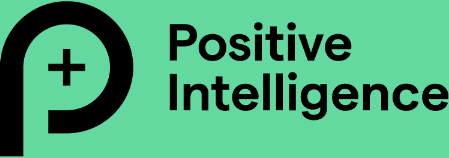With so many choices to make every day, we need to sift through our options before stepping into action. Many have heard of the Serenity Prayer which encourages us to Serenely accept what we cannot change and focus more heartily on those things we can, have the Courage to tackle what we can and seek the Wisdom to distinguish between the two. Much depends on our ability to be proactive, not only reactive to our environment and circumstances. To truly accomplish this, we must learn to make solid decisions and build good habits.
A few years ago, I read Charles Duhigg’s 2012 book, the Power of Habit. He did a masterful job of unpacking fascinating aspects of neurology and psychology relevant to our habits. Duhigg cited a 2006 Duke University research report which discovered that more than 40% of the actions people perform each day weren’t actual decisions, but habits. I’ve dialogued with psychologists who purport that a majority, perhaps as much as 90%, of our behaviour is subconscious, emanating from nature (genetics) and nurturing (early childhood formation). I don’t know the actual percentage, but I observe a keen desire in many people to be more mindful of thoughts and decisions and stronger governors in aligning their actions to priorities, values. Habits play a large role and there is hope, because we can adapt and grow them.
However, Dr. Ron Jenson points out in the old adage: ‘the highway to hell is paved with good intentions’, which can be timely as we navigate into the new year with our hastily gathered resolutions. Let’s say that ‘hell’ in this case is the junkyard of our good intentions that never got out of the garage, let alone down the highway of purposeful intention. Thankfully, our world is filled with smart, creative, skillful people with great ideas, and people with really good intentions. Unfortunately, it is less likely that the person who takes an idea, a dream, or a project, actually sees it through to its fulfillment… makes things happen.
Making things happen requires self-discipline including the ability to regulate conduct by principle and judgment rather than impulses, desires or social norms. Duhigg’s works point to the need to be very self-aware, plus, conscious of our habit making process, the habit loop. This loop includes Cues to trigger the brain to go into automatic mode and which behaviour to use. Then, Routines which can be physical, mental or emotional. Finally, there is a Reward which helps our brain figure out if this behaviour is worth remembering for the future. Understanding the loop and its components is vital in successfully forging new habits.
The next essential step is to find a practical methodology to design and practice new habits. Making things happen is not so much about working harder as it is about working smarter. If we just work harder and harder doing the same things repeatedly, without dealing with the roadblocks and blind spots, they will simply trip us up more frequently and more intensely. It’s all about creating and establishing better habits. What are your HABITs? Here are some insights and suggestions to help reflect on new habits to get you on the road, some are courtesy of Dr. Jenson.
- Habits are actions that people first decide to take deliberately and keep doing subconsciously. Since a majority of our actions may not be known to us, we need to seek and welcome trusted feedback to establish where we might need to change. Potential new habits need to be brought to our conscious mind to begin any effort at change or growth.
- Determine precisely what habit you want to adapt or create and then draft a clear written statement of what you intend to mindfully undertake differently. Be sure it is important to you and your success.
- Always remember the principles, value or truths behind why you are changing or growing a habit. If we routinely remind ourselves that the new behaviour is consistent with our personal or professional values, an enhancement to our career trajectory or even better for our health, we are much more likely to stay with it.
- Also, be patient with yourself as you practice! ‘Once and done’ is not often our reality. Many psychologists agree that if we can do something for 21 consecutive days, it becomes a habit. Take the right amount of time to build a new habit and/or support the people around you as they build new ones too.
- Consider the successful completion of your new habit and how you will joyfully celebrate the accomplishment … the reward. We are all human so we can have setbacks in our discipline of practicing the new habit. If so, it may be worthwhile envisioning a negative penalty. Nothing harsh or outlandish, perhaps not watching that discretionary favorite Netflix or sports show so it stings a bit.
- If the habit impacts another person or if you need some personal support to muster up the focus, conscript the kind and persistent help of an accountability partner. It could be a business associate, boss, family member or even one of the many downloadable apps that are available to keep you on the path.
Valuable Insight…
Simply stated… if we want different results, we will have to develop different habits. If we want to avoid the highway ‘paved with good intentions’ and inactivity, then we may need to deepen our disciplines and introduce new habits that will enable successful adaptations to our personal and professional lives. If we want success, personally and professionally, then we must become more proactive and take initiative to build our habits, to Make Things Happen.




